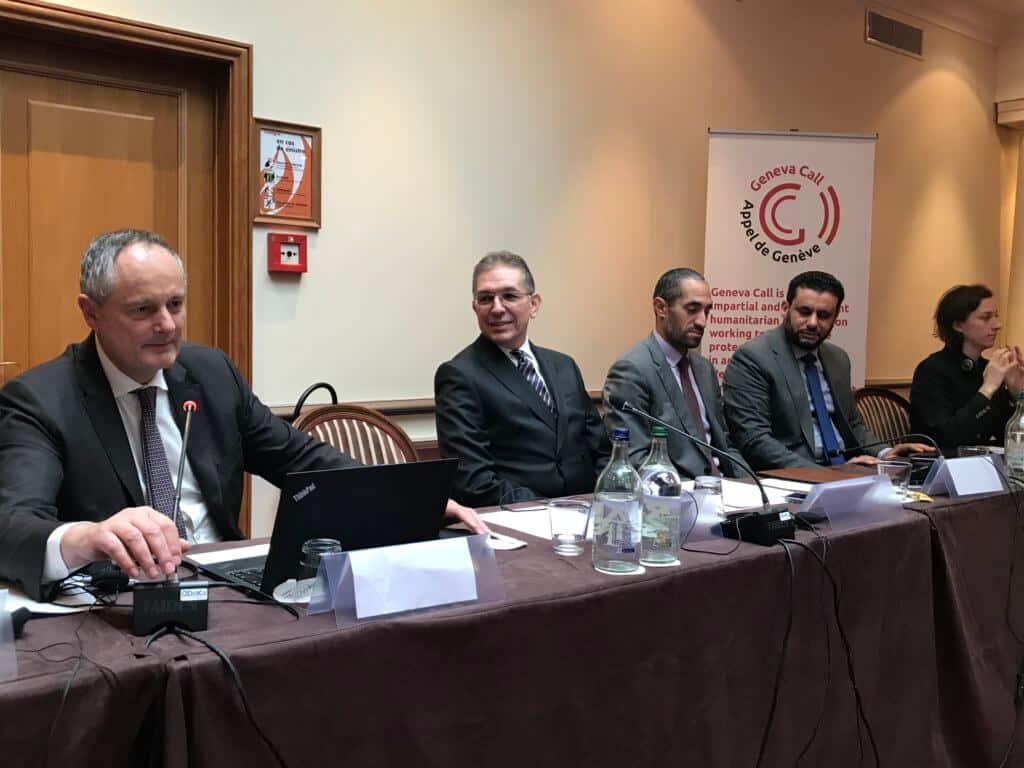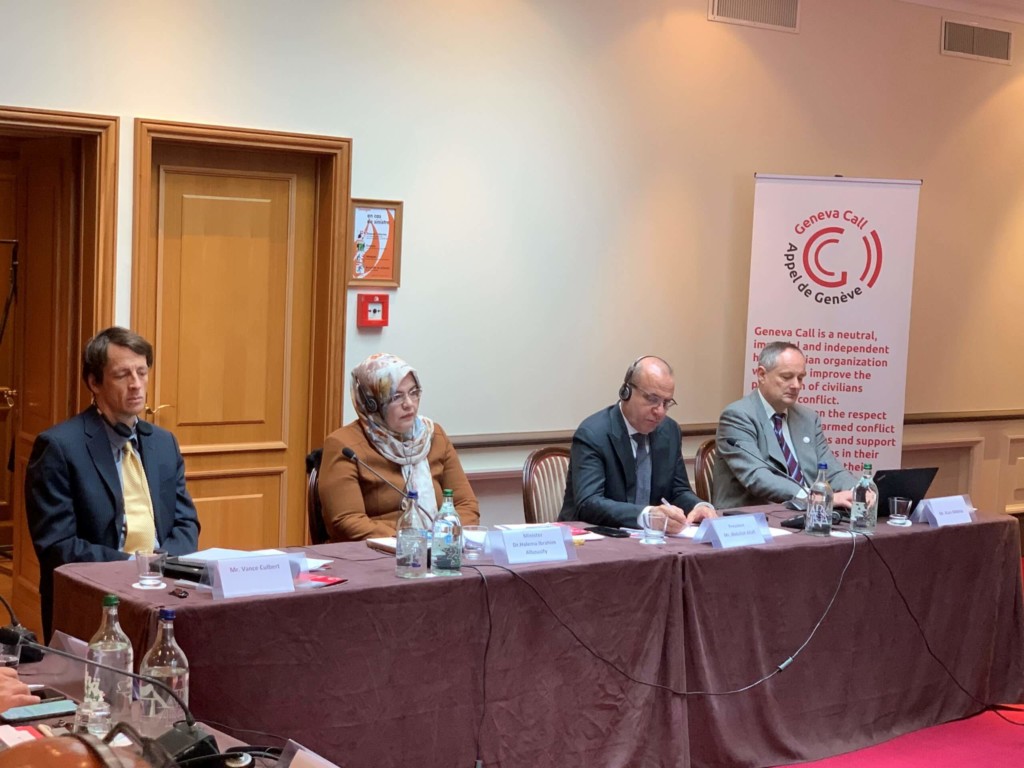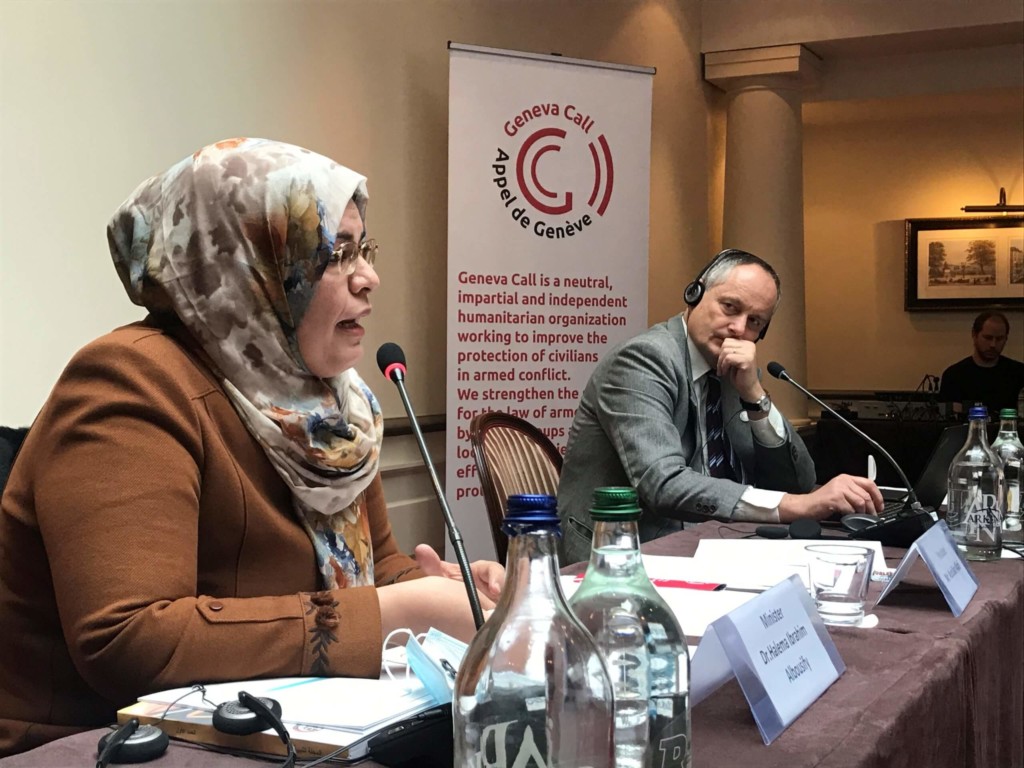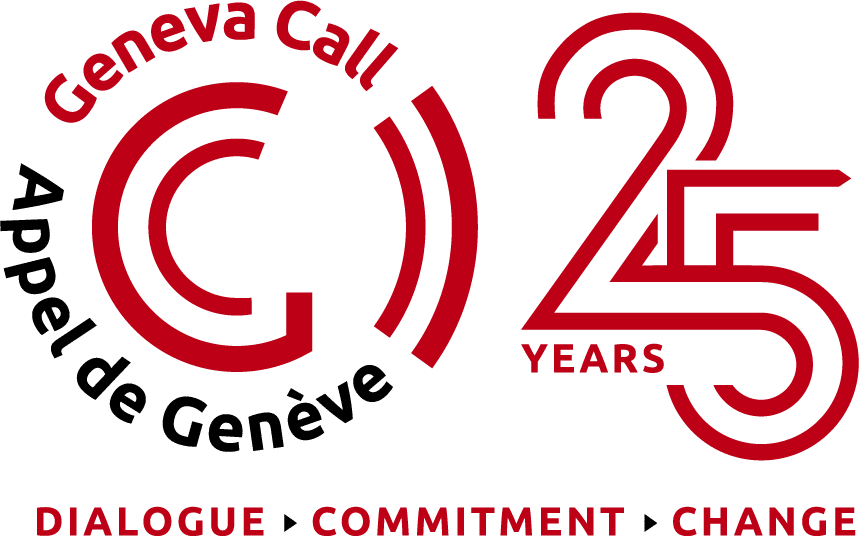
Libya: Officials Pledge to Strengthen the Protection of Children and Education in Libya
3 décembre 2021
On 24 and 25 November 2021, Geneva Call hosted a Conference on the protection of children in Libya, attended by the Vice-President of the Libyan Presidential Council, the Libyan Minister of Justice, other Libyan members of government and the Libyan Inter-Ministerial Committee on International Humanitarian Law (IHL). Over two days, hosts and participants reflected on concrete ways to improve child protection in Libya, culminating with the signature of a Statement to Strengthen the Protection of Children and Education.
In the Libyan context, children are particularly vulnerable to the effects of armed violence; “the figures about child protection in the country are worrying” stated Alain Délétroz, Geneva Call’s Director General, during the opening speech of the Conference. In June 2021, the UN Secretary General’s Report on Children in Armed Conflict reported 96 incidents of children killed or maimed, and 166 grave violations of IHL committed against children. In addition, a total of 287 schools are reported to have been damaged or destroyed. As Mr. Délétroz reminded the audience, the questions of child protection and education represent “a crucial issue for the future of Libya.”

The audience shared this assessment; Mr. Abdullah Allafi, Vice–President of the Presidential Council, stressed the determination of the Presidential Council to “enhance the protection of human rights for all Libyan civilians in war and peace”. To this end, he mentioned actions to combat impunity and criminalize perpetrators of violations against children. “It is our responsibility”, he added, “to criminalize anyone who incites children to be recruited”.
Dr. Halema Ibrahim Elbousify, Minister of Justice, also stressed the importance of ensuring that children do not bear the brunt of armed conflict, because of the long-lasting effects on them and society. After presenting an overview of the relevant legal instruments ratified by Libya, including the Convention on the Rights of the Child (CRC), and the Optional Protocol to the CRC on the involvement of children in armed conflict, she explained: “your interest is our interest when dealing with the protection of children, who are the future of society, and we must protect them from the effects of the armed conflicts”.

Even though all present agreed on the importance of protecting children, they also acknowledged the many challenges brought forth by such imperatives. Of the various recurring challenges discussed, the question of the ownership of the relevant norms was one of the most interesting. Indeed, Libya continues to face the challenge of armed actors in transition that lack awareness, training, and accountability in relation to their obligation to comply with international humanitarian norms. As a result, children in Libya continue to face widespread protection risks and remain at risk of grave violations of humanitarian norms. Hence, many of the participants agreed that the way forward was to establish a bottom-up effort to spread awareness and engage multiple stakeholders at different levels of the Libyan society, including through seminars, workshops and an expansion of schools’ curricula.
Another challenge repeatedly brought forward relates to the recognition by the participants that Libya possesses a weak system and unstable political structure. This was seen by many participants as an obstruction of IHL capacity-building, and therefore a further impediment in the process of ownership of the norms mentioned above. This second challenge is linked to a third, highlighting that during the Libyan transitional period, corruption has been widespread and has impacted the implementation of humanitarian norms.
Still, all agreed that even with these challenges a way forward was possible, and desirable. This way forward must be acknowledging Libya’s cultural, religious, and societal specificity. Indeed, participants repeatedly affirmed that children’s rights and protection are enshrined in Islamic law and tradition, hence in Libyan society, and that this must be taken into consideration when reflecting on how to improve compliance with IHL.
At the end of the two days, after thorough discussions, the Libyan Inter-Ministerial Committee on International Humanitarian Law signed a recommendation document to Strengthen the Protection of Children and Education in Libya that will serve as a basis for further improvement in child protection in Libya. Over the next months, Geneva Call will continue to develop its programme in Libya by raising awareness around IHL and other international norms. Continuous engagement with relevant actors will be pursued on the protection of civilians and specifically of children in armed conflict and in its aftermath. Geneva Call aims to strengthen the implementation of and respect of IHL in Libya.
